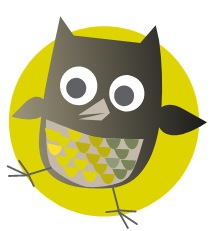The BBC 500 Words story writing competition is back! On September 26th, the competition opens for children in the following age groups – 5-7 years and 8-11 years. That means every single child submitting a story is in with a chance to win prizes and maybe get to the Grand Final!
Please note: The closing day for BBC 500 Words 2023 is 10th November so there is plenty of time to get started. You can find all you need to know about the competition and how to enter here 500 Words – BBC Teach.
Telling a story is a great way for children to let their imagination run free. Through their story, they can go on adventures, solve mysteries, have special powers, travel into far off space or perhaps discover something closer to home. It is also a chance to invent new words, to choose their own adjectives and adverbs, to string it altogether using the right grammar and punctuation marks, and finally, to craft it into their best story ever ready for typing up and submitting.
Helping your child on their journey to writing a story can be fun for both of you. We have put together some tips to help you below.
Top Tips
Get ideas flowing when you are doing an everyday activity such as washing up or walking or driving to school. Look around for a story starter – it could begin with a magical drink, a dog in the park, the car in front in the queue, the plane in the sky, the person looking out of their window – anything. Take it in turns to tell the next part of the story. Use the 5 W’s to help you – who? what? why? where? when? – and one more question, how?
Make a Plan!
Maybe one of these ideas will be the one your child chooses to develop for their story. It can only use 500 words (the title is not included in the word count) which is not that many. There are 120 words in this paragraph alone! It will need a beginning, a middle and an end and each paragraph should have a new theme. At the beginning, we usually meet the main characters and discover where the story takes place. In the middle, the main character has a problem or difficulty to deal with. This will be where the story gets exciting. As we near the end of the story, there is a sense of calm as they solve the problem.
Adjectives and adverbs
On the plan, jot down notes and draw pictures – of the story line, of the characters, names which match their nature, and words which might be useful. Think about how the hero and villain look, how they walk and talk, and what they wear. It will all add to the atmosphere of the story.
If vocabulary inspiration is needed, a thesaurus gives suggestions for descriptive words. Start with a word, find it in the thesaurus using alphabetical order and there you will discover lots of similar and related words. There will be adjectives and adverbs to help and hints and tips which might come in useful.
Get Started and Improve
Now it is time to start writing using the plan as a guideline. Remember to keep checking how many words have been used as you go. You want to have plenty of words left to write the ending!
Once the first draft of the story is written, it is a good idea to try it out on an audience by reading it out loud. Reading the story to someone new will help to spot any holes in the plot. If it is funny, the audience should be laughing in the right places. Your child might can ask for help and suggestions but remember, it is their unique story.
Submit!
This is the time to help your child make final tweaks to their story, for them to make any changes and rewrite any bits that they don’t like. It will soon be their best story ever! An adult will need to type in the final story and submit it. You can both be proud of the story now.
More from Oxford Owl
Blog: 4 top tips for writing great plots
Blog: 4 fun ways to develop characters for a short story
Blog: How to find the perfect words for your story
Blog: Using storytelling to help develop reading and writing skills

